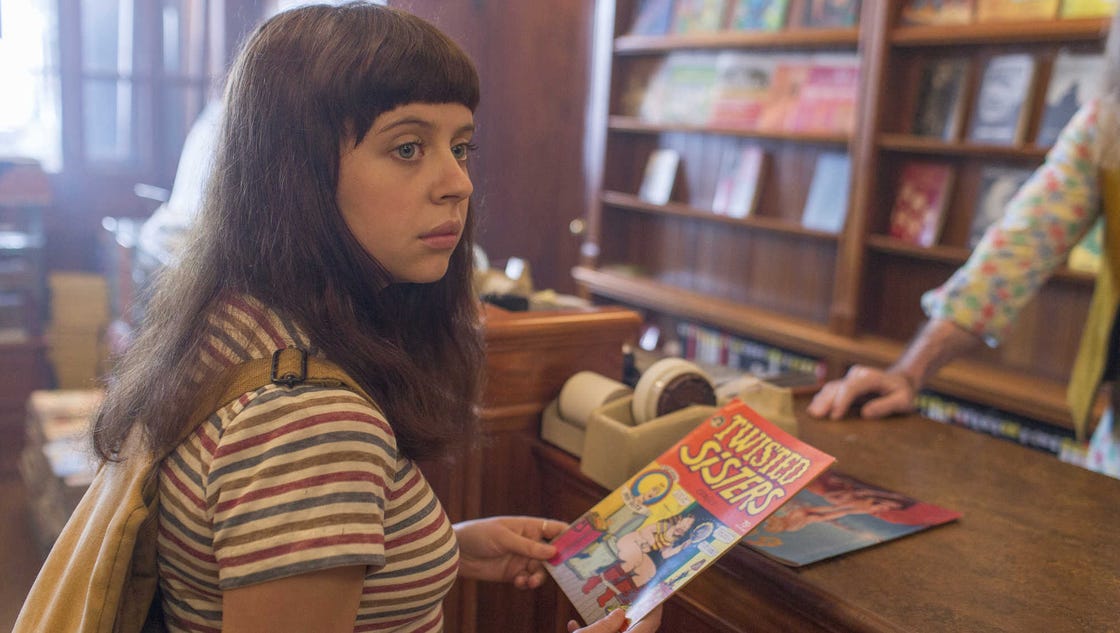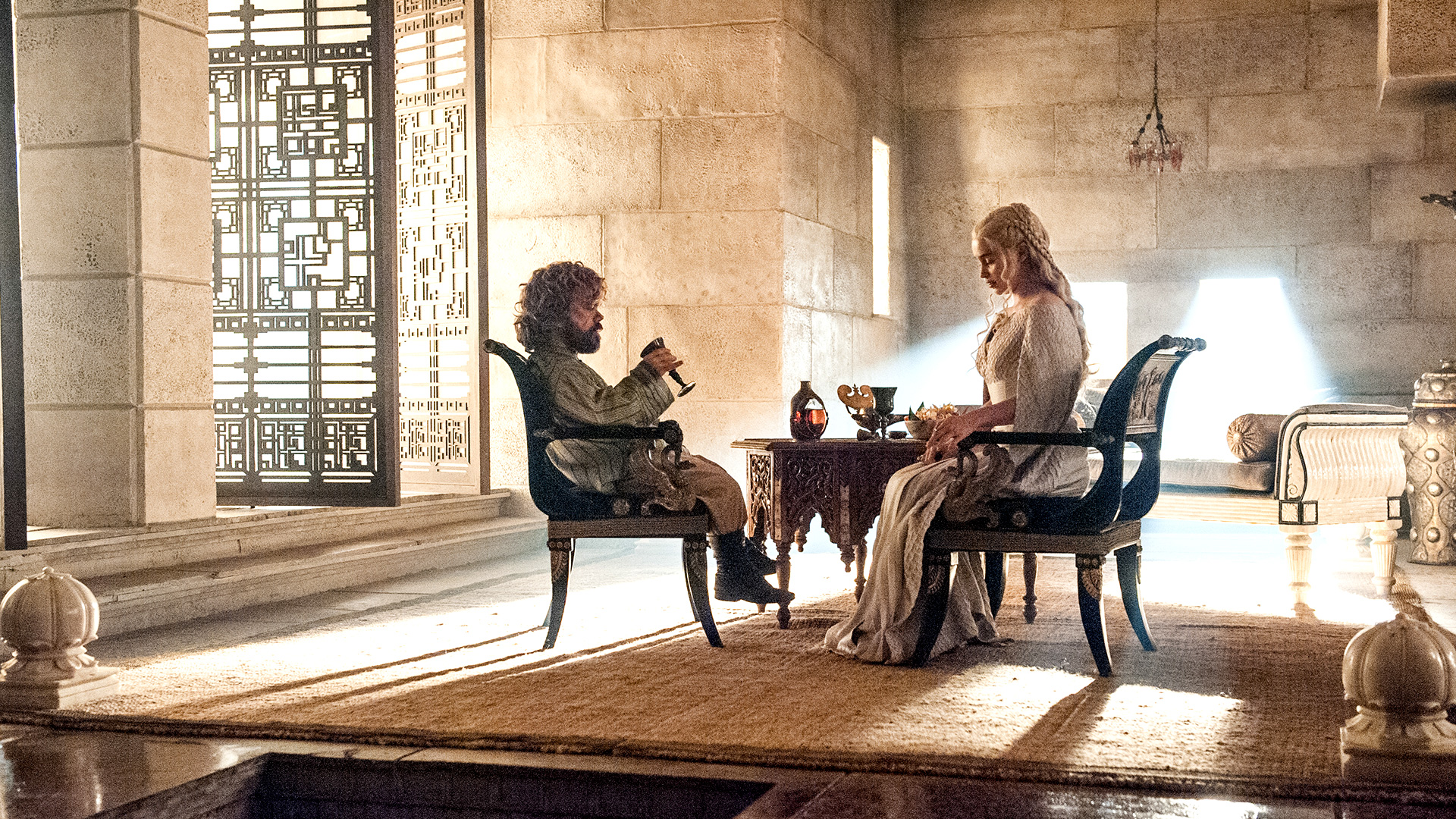Harper Lee’s
To Kill A Mockingbird – to many, a junior high/high school mandatory read – changed my life. I’m not the only one who could say that with no ounce of pretentiousness. For some, the character of Atticus Finch is seen as a father figure, for others an inspiration for getting into law and making the world a better place, to legally fight the inequalities of life. Finch has been on many a list of people’s greatest characters of all time (Jay and I both placed him on our respective
Best Movie Dads) and this is mostly due to his silver screen portrayal by the legendary, all-around wonderful human being
Gregory Peck in the 1962
film version.
For me, Finch and his ilk in Mockingbird said many deep, philosophical things without sounding deep and philosophical, but rather more simplistic, realistic speak with which almost anyone could search for meaning. I use Mockingbird quotes to get me through dealing with tough times -- and people -- as well as trying to become a better person. I use Mockingbird quotes to try and make sense of a world that was just as convoluted as it was back in the 1930s setting of the story and 1950s reality of which time the story was written. Mockingbird has not just hope but gritty reality. Mostly, it has hope and that has made it – and its Southern charm, elegant prose – the enduring classic for which it is known.
It’s only been six days since the release of Lee’s much-anticipated novel, Go Set A Watchman, the sequel to her legendary Pulitzer Prize-winning novel, and I finished it in three days. First off, I will quickly get out of the way the known facts of how the novel came together. When Harper Lee originally wrote Watchman back in the late 1950s, she had included flashbacks to her main character’s – Jean Louise Finch’s – childhood. Her editor read the manuscript and enjoyed the flashbacks so much, he gave her the idea of focusing on Jean Louise’s, or as we know her, Scout’s, childhood. So Lee took a few of the flashbacks out of Watchman, inserted them into her new manuscript – originally entitled Atticus Finch – and ran with it. The manuscript eventually became Mockingbird and Lee’s whirlwind entry into literary fame. What was eventually found soon after Lee’s protective, attorney sister, Alice, passed away in late 2014, was the original manuscript of Watchman (without the scenes which were eventually added to Mockingbird), and it was released last week with Lee’s blessing.
Now, on to the good stuff. I will keep this review as spoiler-free as possible, so don’t fret. Watchman, which takes its name from the Bible verse Isaiah 21:6, focuses on Scout once again, although, this time, Scout goes by Jean Louise and she is now twenty-six-years-old and no longer a permanent resident of the Alabama township of Maycomb, but now a New Yorker. The story begins with Jean Louise returning to Maycomb via train, and we are given a history of her native land and its people (more so than in Mockingbird) as well as the joyous news that she is somewhat engaged to her childhood friend Henry “Hank” Clinton (no, not Dill!). The major difference with the story is that, whereas Mockingbird was written from the perspective of six-year-old Scout, Watchman is told from a third-person perspective. However, sometimes, not very often, Lee slips and the narration, without warning or noticeable change in font, switches to Jean Louise’s thoughts. This is further proof that the original story of Watchman was to be told in third-person, and either Lee or her editor made the decision to have Mockingbird told from Scout’s perspective. Most readers may not like the third person narration and prefer the Scout’s first-person voice as they feel more connected to the character. To argue first person versus third person in terms of which is better is an age-old argument in the literary world and I won’t get in to it here. All I will say in terms of the narration is that Lee’s distinct voice is still a heavy presence in Watchman.
The endearing characters from Mockingbird are mostly all here, whether by a simple mention of name or a heavy presence: Atticus, Jem, Dill, Calpurnia, Aunt Alexandra, Uncle Jack, as well as Zeebo, Judge Taylor, a nameless mention of Tom Robinson and Mayella Ewell, and a blink-and-you’ll-miss-it mention of Miss Maudie Atkinson. Whereas Aunt Alexandra and Uncle Jack had somewhat smaller roles in Mockingbird, their roles here are much more significant and the reader gets to know more of their personalities, even if those personalities may have somewhat changed over the past twenty years. There are also some flashbacks to Scout’s adolescence still intact, but they are the clichéd tales of growing pains (i.e., feeling the need to wear falsies), albeit told with Lee’s wit. One can tell Lee wrote this at the same time she wrote Mockingbird as all of the character’s mannerisms, description (although they are twenty years older), and ways of talking are the same.
The book started a bit slow to me as I wasn’t quite interested in the town’s history, but by chapter eight, the story and the bulk of the plot are revealed. The first seven chapters were still a quick, easy read and once the story picked up, Lee’s prose, speeches and situations made the book impossible to put down. Ultimately, Watchman is a coming-of-age tale about a young woman coming home to her small hometown to find that those she turned to for moral inspiration and support are not who she thought they were. It’s about growing up to find out that your parents are human, they make mistakes, and they may not have the same set of ideals as you. Lee’s Jean Louise/Scout is rudely awakened to find that her father is not the man she thought him to be and that her town – a place she is half in love with and half despises – has become a faraway place in terms of who she now is as a person. Anyone who has ever had the same feeling as Scout, having drastically differing views than those of their parent(s) or guardian(s) and/or discovering their parent(s) is not who they thought they were, will most likely be deeply affected by this story. Watchman is the death of a hero … but it is a necessary death. I found myself feeling exactly the way Jean Louise feels throughout most of the last two-thirds of the book, trying her best to ignore the wretched truth of which cannot be ignored. What she speaks is what I have felt in my own personal experiences.
The issue of racial equality is still front-and-center of Jean Louise’s journey as it becomes the catalyst for her adversity with her family and most of Maycomb. What most people want to know is whether Atticus – a strong, moral pillar of a man – is racist in Watchman. Well … yes and no. On its face, he has racist views. Ones not expressed at all in Mockingbird. There is no explanation why or how he came to change, but I believe that is simply what happened to him. He changed. People do that, after all. Atheists can become Christians. Christians can become atheists. Democrats can become Republicans. Republicans can become Democrats. People can switch their favorite sports team or favorite ice cream flavor. It happens all the time during our lives. And there is no exception in the lives of a literary character; that is what's real. Let’s also remember that this story does take place in the South in the late 1950s during the big segregation battle. Nevertheless, above all, Atticus still believes in the law. And he believes the law should service everyone equally, no matter their race. The tragic sting of having an inspirational character revealed to actually be everything you thought they would never be is heartbreaking. No one takes that sting to heart more than Jean Louise and the reader is easily transformed into her and joins her on her journey through Lee’s writing. My only criticism to Lee’s tome is that there is one prevalent line Atticus says in Mockingbird which would completely contradict his own moral character and make him a hypocrite in Watchman (HINT: The line begins, "As you grow older, you'll see white men ..."). Again, even though Jean Louise calls out Atticus’s hypocritical ways here, all one can chalk up his drastic change to is time – time and change of beliefs.
I believe Watchman came along at just the right time. With many debates and outrage today regarding race relations, the NAACP, racially-motivated shootings, and the “true” basis for the Civil War (which could parallel to the creation of the Confederate flag) – all of which are addressed in Watchman – Lee’s 1950s-penned story is uncannily apropos to today’s racial issues. While there is no absolution to such issues within Watchman’s pages, Lee continues the good fight and it is felt through Jean Louise. What is great about Lee’s story is also her ability to not be entirely one-sided. She touches on both sides of the issue with a level head and plenty of respect … even when her characters are freaking out. When a character is dancing around an issue, the reader will feel just as frustrated as Jean Louise and want a flat-out answer. Lee’s characters dance to their own music and answer life’s – and Jean Louise’s – questions in their own melodic ways. It is this which gives them credibility and life.
But there is more going on than just racial issues. There is the issue of a girl who held her father in such high esteem seeing a side of him that she didn’t believe existed or could never exist. That is what lies at the heart of Watchman. It’s about making peace with what you cannot control, learning the true meaning of tolerance of others who are different than you lest you turn into the very thing you claim to despise – a lesson many people on both sides of any issue or political party must learn if we are to grow as a country united – and being true to yourself. My personal take on the ending was that it was very cathartic for me. I related to SO much of what Jean Louise was experiencing, saying and feeling – not so much because of racial beliefs (although I do believe in the equality she does), but more about being different and seeing things differently than a seeming majority. While the story may seem a tad darker thematically than its predecessor, and the story somewhat lulls at the beginning, I believe Harper Lee’s unearthed story still contains what made Mockingbird so beloved. The ultimate message which Jean Louise learns from the most unlikely source near the end is inspiring and endearing and full of hope, yet also delicately, with great understanding, shows any reader the opposite side of their own belief. It was those feelings which permeated me as I closed the final page on Go Set A Watchman – and as Ms. Lee is famously quoted as saying, “The book to read is not the one that thinks for you but the one which makes you think.” Doesn’t that, after all, make for a successful, effective piece of literature? I reckon it does.








